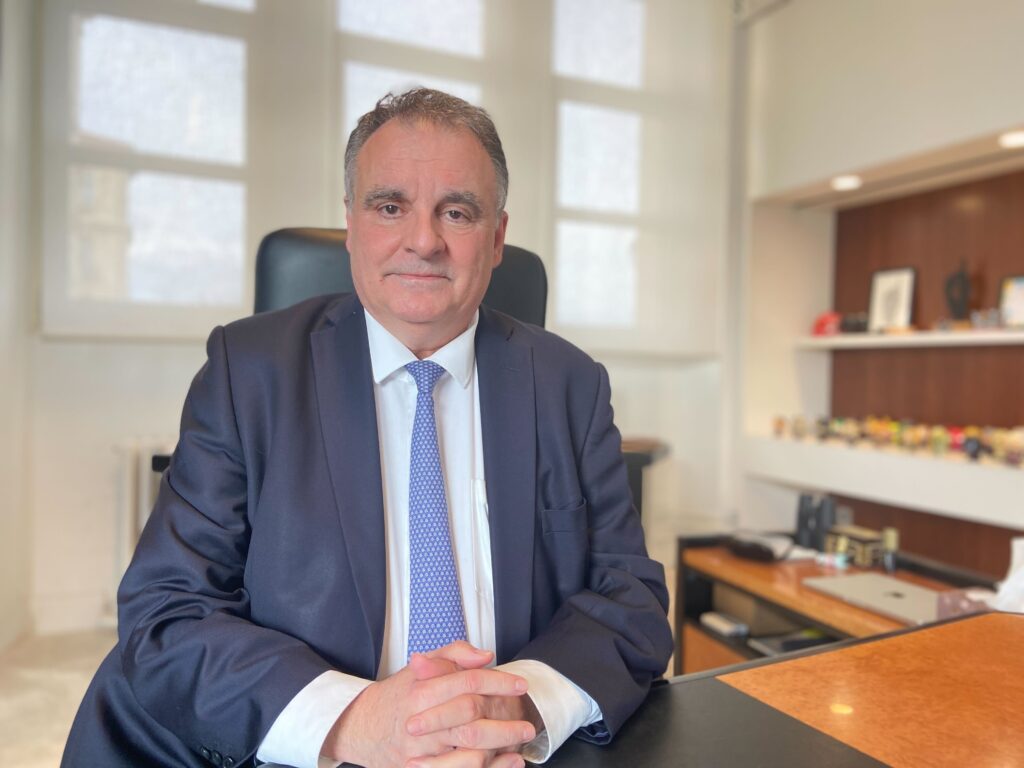Europe wants to attract American scientists
Description
The president of Aix-Marseille University, Eric Berton, likes to refer to the incoming Americans to his institution as “scientific refugees.”
At a reception on campus in June, Berton welcomed eight Americans to the university. He said that during World War II, many French and European scientists fled to the United States to continue working freely.
The US, he said, extended a helping hand.
In a sad twist of history, Burton told the group, “Today, it’s the Americans who are coming to France seeking a space of freedom, thought and research.”
As federal cuts to science and research in the US continue, some research centers in Europe see an opportunity to lure over laid-off Americans.
The first to do so was the Aix-Marseille University, in southern France. In March, it announced a multi-million dollar fund to hire researchers from the US. It got hundreds of applications.
Aix-Marseille’s program is called Safe Place for Science, and its $16 million of funding is sufficient to support around 20 scientists for three years.
Among those accepted is Brian Sandberg, a historian who studies climate change during the Little Ice Age, which lasted from the 14th century to the present period of warming.
“Eighty percent of staff at the National Endowment for the Humanities, which is the most important organization for research in history in the humanities, have already been fired,” Sandberg told The World. “I was actually, this spring, in the process of developing a grant proposal, working with people there, and they are not there anymore … and it’s the same thing for science and medicine.”
Since taking office, US President Donald Trump has stopped, reduced or threatened to cut funding for several federal agencies, including the National Institutes of Health, the National Weather Service, the Centers for Disease Control and the Environmental Protection Agency.
President Berton at Aix-Marseille University said he’s been monitoring the unfolding funding cuts in disbelief.
“I was shocked,” he said. “I said to myself, ‘We can’t just sit back and do nothing.’”
<figure class="wp-block-image size-large">
 <figcaption class="wp-element-caption">Eric Berton, president of Aix-Marseille University, in Marseille, France.Gerry Hadden/The World</figcaption></figure>
<figcaption class="wp-element-caption">Eric Berton, president of Aix-Marseille University, in Marseille, France.Gerry Hadden/The World</figcaption></figure>Within weeks, Berton launched the Safe Place for Science program, expecting only a few applications.
“But I didn’t expect 300 candidates in just 2 weeks,” he said. “If we hadn’t closed submissions, the resumes would still be landing. It shows just how bad the problem is stateside.”
At the time of the welcoming ceremony in June, the American researchers had yet to sign their contracts. Many, like one acceptee who spoke to The World at the event, asked that their name not be used, fearing retribution back in the United States.
“The research environment in the US is so difficult, practically, and it’s difficult emotionally,” the acceptee said. “Sources of funding are being cut and, emotionally, it’s just so difficult to see colleagues lose their jobs. And to see decisions taken that will have negative consequences far into the future.”
The sense that cuts to science could be long term has prompted many other European regions to plan for a possible exodus.
The president of the northeastern Spanish region of Catalonia, Salvador Illa, announced his own initiative: a $32 million fund for 70 American scientists.
The European Union estimates there are now some 60 national and regional campaigns underway to attract non-European researchers. The EU itself has recently allocated more than half a billion dollars to attract the brightest minds to the continent, with a new initiative called Choose Europe for Science.
Aix-Marseille University President Eric Berton says he designed his grants to last only three years with the hope that after the next presidential elections in the United States, science funding will be restored.
“But we’re not trying to profit off this flight,” said Berton. “What we’re creating is an asylum program for scientists.”
The post Europe wants to attract American scientists appeared first on The World from PRX.





